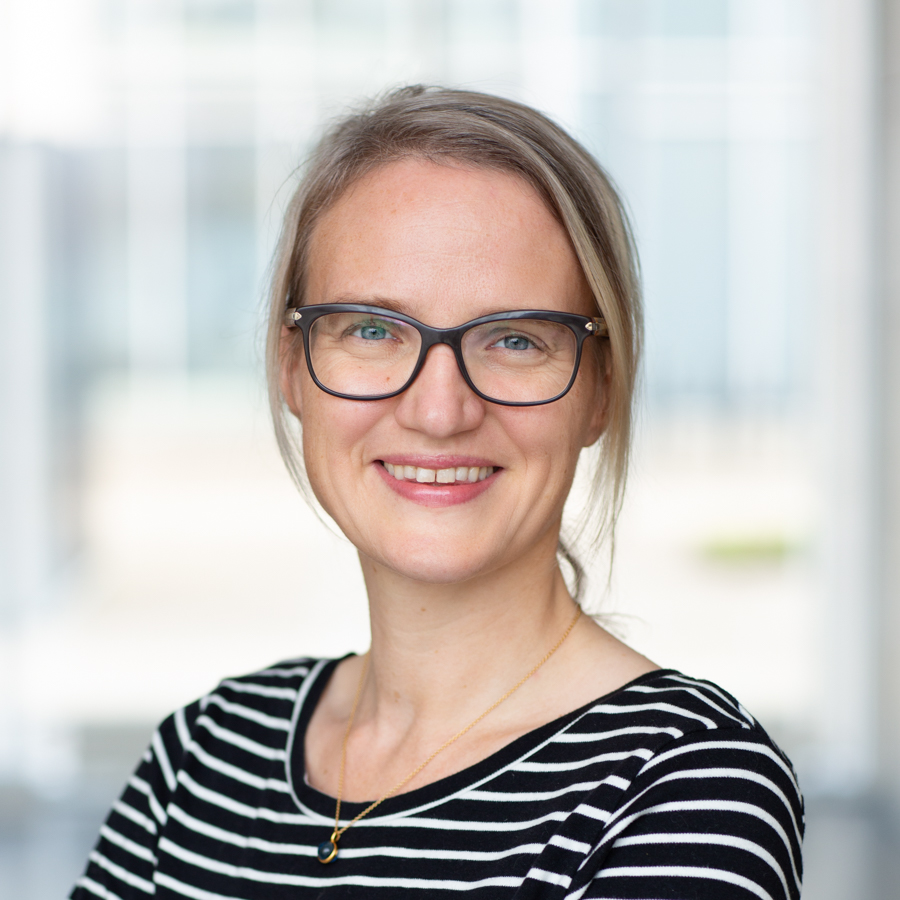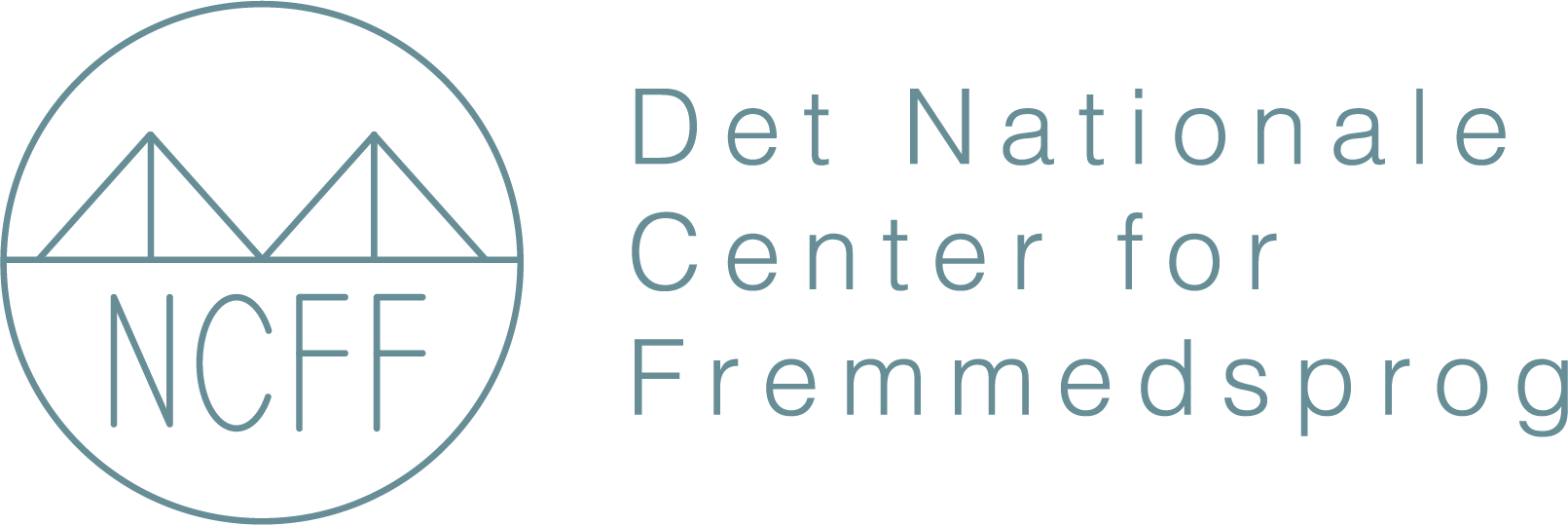Models for teaching languages as an additional competence (MUST)
From 2020 to 2023, the MUST project carried out work to investigate how best to introduce language as an additional competence in higher education on non-language programmes. The idea behind the project was to develop a set of models for offering language training as an additional competence based on a needs assessment among the project partners. The project was funded by the National Centre for Foreign Languages (NCFF).

Language as an additional competence
Language as an additional competence refers to the development of study- and career-relevant language skills through initiatives aimed at students not studying on a language programme. Language training can be tailored according to how far it is a skill to supplement studies or to use in a future career, or a combination of the two, and can be more or less closely linked to students’ other courses. The primary aim with MUST has been to focus language training on those elements of the programmes where language can support academic content, based on the assumption that the more closely language training can be integrated into courses and study activities, the more likely it is to enhance student participation and learning.
The term “language as an additional competence” is rarely used in academic literature and is probably more of a political than an academic term. An additional competence requires a primary competence, known as a core (academic) competence. This can lead to a perception that language in higher education is not important, with the result that programmes and students often give it only low priority. We have taken the opposite standpoint. Language constitutes a vital part of subject competence in the sense that students on all programmes must acquire subject-specific communicative competencies (Airey, 2011). Language is used by all students as a means of acquiring academic knowledge and communicating with fellow students and teachers.
The government's 2017 Strategy for Improving Foreign Languages in the Education System recommends a number of initiatives to improve foreign language learning in the Danish education system, including foreign languages other than English. The strategy refers to focusing on non-language students and their language skills as “language as an additional competence”, something that is often lacking in many higher education institutions who tend not to have language programmes aimed at this group of students.
We believe that it is important to sharpen the focus on study- and career-oriented language skills across the spectrum of higher education. Language skills are an obvious advantage in international workplaces at home and abroad - and in some professions, a necessity. To prepare students for this reality, it's important to improve their language skills as part of their education.
However, developing language learning which can be integrated with other disciplines is a complex task for most educational institutions. It requires insight into what language needs students have for their studies and for the future labour market and often requires interdisciplinary collaboration to ensure that the language teaching is both relevant and of a high quality. There are, however, undeniable benefits of offering language as an additional competence, including boosting students' active participation and thereby enhancing their academic awareness and learning.
To improve students' language skills, we recommend that you work at the institutional and subject level:
- identify language needs as a study skill - both students and subject teachers should be involved here
- identify language needs for prospective careers - career counsellors, alumni, employers and current students should be involved here
- assess the impact of language on recruitment and dropout in non-language programmes
- further develop relevant language skills (reading, writing, listening, speaking, domain-specific language, everyday language, translation skills, information search skills, critical use of AI, etc.)
- create a framework for planning which language skills should be included and have these evaluated by both language teachers and subject teachers
- develop methods to evaluate the language skills both when they are part of the competence profile and as a stand-alone element
- finance the language teacher's salary, for example via a central pool at each educational institution
The project's six language development cases, listed below, focused on French, Spanish, English and general intercultural competence with students participating in various study activities: preparation for a career, fieldwork or studying abroad, reading academic literature while still studying in Denmark, and developing global collaboration skills in a multilingual study environment.
Case 1: French law and language for an international legal career. Project partner: Faculty of Law, University of Copenhagen. Read more about this case here.
Case 2: Spanish for field and institutional visits in Mexico for medical students. Project partner: Department of Public Health, Faculty of Health and Medical Sciences, University of Copenhagen. Read more about this case here.
Case 3: English for the building construction programme. Project partner: Copenhagen School of Design and Technology (KEA). Read more about this case here.
Case 4: Reading English research articles for the biology programme. Project partner: Department of Teacher Education, University College Copenhagen (KP). Read more about this case here.
Case 5: English for study and internships abroad. Project partner: Department of Teacher Education, University College Copenhagen (KP). Read more about this here.
Case 6: Multilingualism and intercultural competences - study start module. Project partner: The Royal Danish Academy of Music.
A detailed description of each case giving details about the identification of language needs, and how and where each case was developed can be found here: How cases were developed.
Kraft, K., Larsen, S. & Holmen, A. (2023). Sprog som tillægskompetence: Hvilke sprog og hvorfor? Sprogforum, 75, 89-97.
Larsen, S., Nissen, C.F.R. & Holmen A. (2024). Sprog integreret med fag? Ja, tak. Sprogforum, 78, 59-66.
Nissen, C.F.R. (2024). Er der brug for sprog? Jurastuderendes perspektiver på værdien af sprog som tillægskompetence. Dansk Universitetspædagogisk Tidsskrift, 19(36).
You can also read or download two publications about the projects from the website of the National Centre for Foreign Languages:
Hvordan udvikler vi sprog som tillægskompetence? Anbefalinger og erfaringer fra et tværinstutionelt udviklingsprojekt
Modeller for undervisning i sprog som tillægskompetence: Udviklingscases
The project was carried out in collaboration with partners from eight higher education institutions representing a wide range of programme types with different degrees of practical work experience, including academic master’s programmes and medium-term professional programmes:
- Technical University of Denmark (DTU)
- University of Copenhagen (UCPH)
- Copenhagen Business School (CBS)
- Danish School of Media and Journalism (DMJX).
- University College Copenhagen (KP)
- Copenhagen School of Design and Technology (KEA)l
- Dania Academy (DANIA)
- The Royal Danish Academy of Music (DKDM)
Based on local needs assessments at the participating institutions, we developed and piloted various forms of language teaching aimed at non-language students in close collaboration with the project participants.
 The project was headed by Sanne Larsen.
The project was headed by Sanne Larsen.
Contact
The project was completed by the Centre for Internationalisation and Parallel Language Use. Inquiries about the project can be sent either to principal investigator Sanne Larsen or to cip@hum.ku.dk.
Researcher responsible for the project
| Name | Title | Job responsibilities | Phone | |
|---|---|---|---|---|
| Anne Holmen | Professor Emeritus | +4535328174 | ||
| Camilla Falk Rønne Nissen | Guest Researcher | |||
| Kamilla Kraft | Associate Professor | Associate Professor | ||
| Sanne Larsen | Associate Professor | +4535328448 |

